Five Questions with Patty Jansen
1) Why must we use bigger elephants?
Must Use Bigger Elephants is the title of my blog (http://pattyjansen.wordpress.
2) Your blogposts are excellent and a good resource for writers. You even defend infodumps in a recent post. How can you be so cruel to fellow editors?
Writers who write poor infodumps are not going to make it past the slush no matter what. It’s not the infodumps themselves that are at fault, but the fact that the writing is dull, told, without voice and with loss of POV. The infodumps could be in the wrong place, told by the wrong person at the wrong time.
The information itself should be vital to the story. When you read SFF, you expect to be fed information at a certain point. That’s part of the genre. It is up to the writer to make the information interesting and bring it at the right time. My point in the post was: if the story requires a chemistry lecture to show a cool part of your worldbuilding, don’t let yourself be talked into leaving out the chemistry. Without it, the story will be poorer, harder to follow, the worldbuilding shallower and your story will be more generic and less interesting. (This is the post in question: http://pattyjansen.wordpress.
3) What should we know about the magazine you edit, Andromeda Spaceways Inflight Magazine?
ASIM was set up by a group of Australian SFF writers ten years ago after Aussiecon3, and has so far produced more than 50 print issues. We also do PDF and have very recently added ereader formats.
The strength of the magazine is that it’s run by a collective. At any one time, there are about 20 of us. Most people stay in the collective for a few years before moving on to make place for new keen young guns, and so the magazine has been the training ground for a lot of writers and editors, and still is.
I am only one of a number of editors. Each issue is edited by a different person, so the magazine has a lot of variety. Overall, we tend to prefer upbeat stories (dare I say humour?). One of our unique foibles is that we have a blind slushing process. When stories come in, our slushmistress feeds them into a slush processing program which strips all identifying details from the story (including your cover letter), and shoots the stories at random to slush readers’ email addresses. A story needs to pass three readers before it is added to a slush pool from which editors can pick. We pay 1.25c (Australian) per word, which puts us at semipro rate. That said, people often underestimate how hard the magazine is to get into. We get thousands of submissions per year.
4) Your story with us, “Party, with Echoes”, takes place beneath the icy crust of Europa. There was some actual science in your science fiction. How did this story evolve?
There is always science in my science fiction, even though it may not be obvious. Even when I’m writing fantasy, there will be science. A recent fantasy project required me to do research on radiation sickness.
For this particular story, I read a fairly scientific book on what we know about Jupiter’s moon Europa. This book was very useful to me, and will probably lead to more stories set on icy worlds. You can probably also tell from the story that I hold an Advanced Open Water SCUBA certificate. I’d always wanted to write a diving story, but the usual SFF diving story—a wreck dive ghost story—didn’t appeal to me. When I read of the water underneath the ice of Europa (kept liquid by the same tidal heating that makes Io volcanic), I had my setting.
The story grew from my deliberations on why people would dive the under-ice sea. What would a person be doing there? Research? Meh. To find resources? So done-before! What about just for the heck of it, because it’s there, as a form of extreme tourism?
Then the story required my characters to find something. This came from the fact that coral is a colony of individuals forming what looks like another organism. What if this aggregate of micro-organisms can move and looks semi-intelligent?
Add to this the mystery of diving in pitch-darkness, and you get a feel for the story.
The best stories come from combinations of ideas. I was very pleased with Lois Tilton’s kind comments about it.
5) We want to know all about your trip to LA as one of the winners of the Writers Of The Future Contest for 2010. What was most memorable and useful about the experience?
Where do I start—it was just amazing. You have to realise of course that I’d never been to the US and had no idea what to expect, but I needn’t have feared. It was the most amazing week I’ve had in my writing career and I can’t even begin to sum up all the experiences.
Most useful? The networking with other writers. Not just the others in the class, but our tutors, and the previous years’ winners who sat at the back of the room.
Most memorable? Meeting all these great writers (Larry Niven, anyone?) and having days with them, as opposed to the five minutes you may talk to them at a con. The awards night, which was in one word: crazy. Having someone else figure out what to do with my hair (which reaches past my backside).
My biggest fear? I never wear high heels. Never. I was afraid I’d trip on the way up the stairs.
Most amazing? Meeting and spending a lot of time talking to Greg Benford.
There is so much more. Talking to the pros about the business side of writing. Meeting friends I’d corresponded with for years but never met. The fact that one of these friends took me out for some sightseeing the day before the workshop started and another came especially from San Francisco to see me. Attending a story reading organised by Author Services, which made me think ‘I must do something like this’ if ever I get to do a reading at a con. Our excursion to JPL and being allowed to see the control room (yeah—I’m a space nerd in case you hadn’t gathered). The crazy coincidence of meeting an Australian scientist there who I’ll be seeing again in October. Having breakfast at the same table as Superman. Yes, really.
Want me to stop yet?
I have some impressions and photos on my blog under the “WOTF workshop 2011” tag.
Thanks for you time & your excellent story.

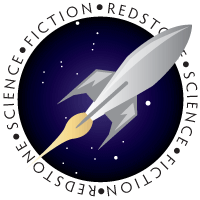
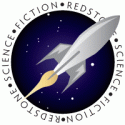



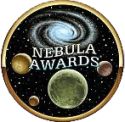
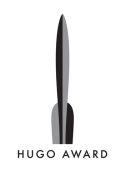
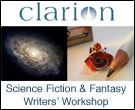


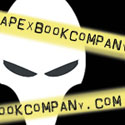
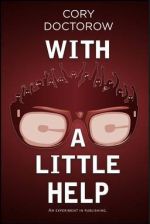
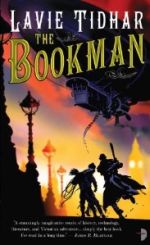
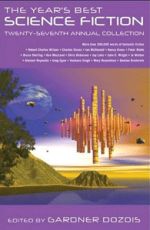


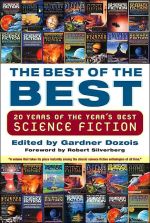
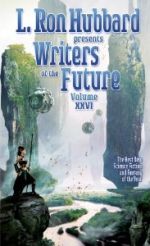

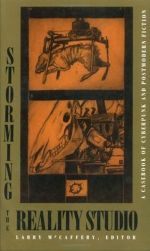



1 comment
[…] Five Questions with Patty Jansen (Party, with Echoes in RSF #12) […]